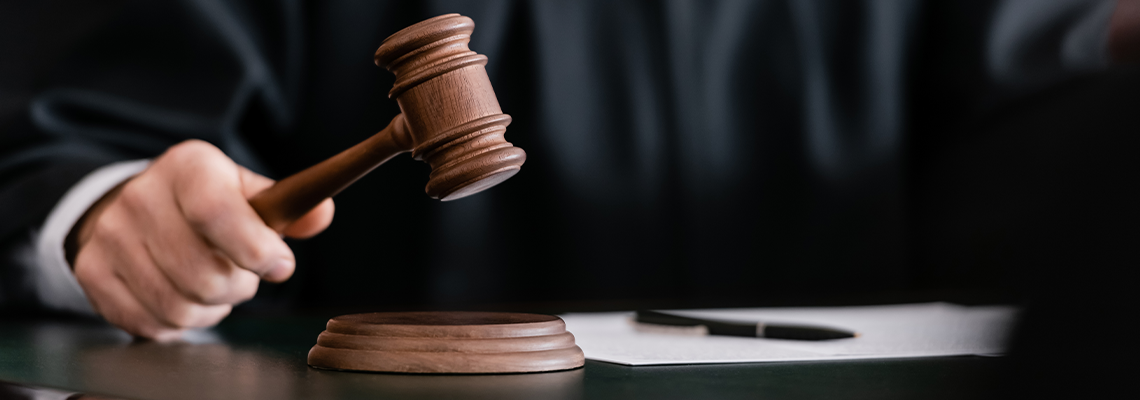In the legal system, a writ is a formal written order issued by a court or other legal authority. For criminal lawyers, a writ is an essential mechanism used to enforce laws, protect rights, and allow justice.
Will I Be Arraigned Before I Am Released from Jail?
You will most likely be arraigned before you are released from jail. An arraignment is basically the first formal appearance in the court to make sure that you understand the charges against you and to determine whether or not you know what plea you want to enter. At that stage, you will very nearly always enter a plea of not guilty. There are some exceptions to that statement, but they are rare. Most courts will have an arraignment within a couple of days. If the prosecutor is recommending that you be released on bond, then you may not be arraigned before you are released. On the other hand, if the prosecutor recommends that you not be released on bond (or only on a certain amount of bail), then you may be arraigned before you are able to get to the bond hearing. Sometimes they happen at the same time and sometimes they are days apart. I think it’s tied into your bond situation more than anything. Some of the state courts actually hold video arraignments now, which probably happen immediately. If that’s the case then you would probably be arraigned before you are released.
At What Point Should I Contact An Attorney In A Criminal Case?
You are allowed to contact an attorney whenever you request to do so. If you are in a custodial situation, the key is to simply say, “I don’t want to speak with you unless my attorney is present. I am requesting that you allow me to make a phone call to my attorney.” If you are not in custody but you have reason to believe that something’s coming down the pipe, then call an attorney as soon as you can.
It is important for people to know that police often enter houses without an arrest or search warrant in order to conduct what’s referred to as a “knock and talk.” This typically happens in child pornography cases after the police have gained information suggesting that a particular internet subscriber in a particular house is involved with child pornography. They will come to the door and hope that the person will agree to informally talk with them, which will almost always lead to an informal agreement that allows them access to the person’s computer. If you find yourself in this type of situation, or anything similar, you don’t have to talk with law enforcement and you certainly do not have to let them into your house or give them access to your things. If the cops come to your door and say, “May we speak to you? We think there’s been a computer [or any other type of] crime committed in this house,” then you should say, “Not unless I can get my attorney on the phone first. Thank you, but I don’t want to talk to you without my attorney.” At that point, close your door and call an attorney immediately.
What Are The Common Mistakes People Make During And After Their Arrest?
Talking to the cops or letting them in your home is the number one mistake. If they have a search warrant then you obviously have to let them in, but you still don’t have to talk to them. If they have an arrest warrant, they are not allowed to enter a house unless they have reason to believe that the person who they are supposed to arrest is actually in the house. The biggest mistake that is made by people of all ages, educational backgrounds, and levels of sophistication is thinking that you have an obligation to speak to the police. That’s simply not true. The only time you have to let law enforcement into your home is if they have some type of warrant. The only time you are obliged to speak to law enforcement, is if they have a subpoena for your testimony – either at a trial or in front of a grand jury. In all of these instances, you should immediately contact an attorney upon being notified that law enforcement wants to come into your home, to arrest you, or to speak with you or to have you speak in court or in front of a grand jury.
What Is The Importance Of Having An Attorney Involved Early On In The Case?
An attorney is in a uniquely advantageous position to protect you early on in a case. The system is not always easily understood and you don’t always get good advice from the police, partly because they don’t have an obligation to be honest with you, but also because, even though they may be well-meaning, they may not know that what they are telling you is an inaccurate version of the law. There is nobody on your side but your lawyer.
For more information on Arraignment Prior To Release, an initial consultation is your next best step. Get the information and legal answers you are seeking by calling today.
RECENT POSTS
Understanding legal procedures such as appeals and post-conviction remedies can be overwhelming and complex, especially when you or a loved one are involved.




